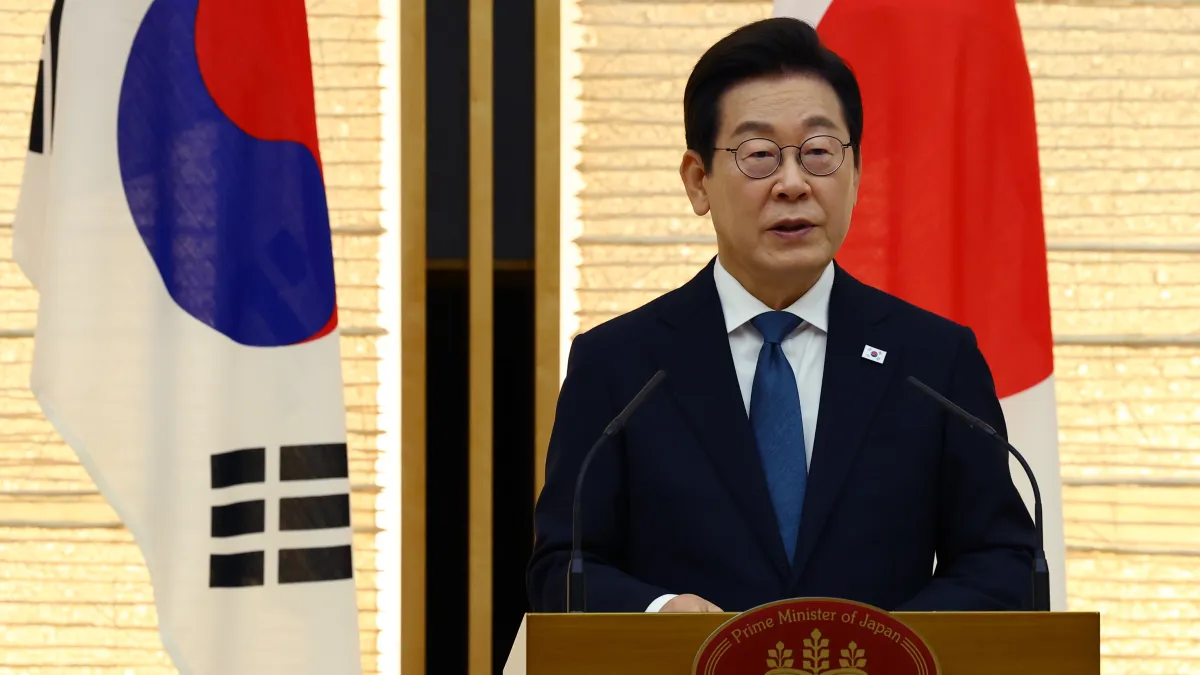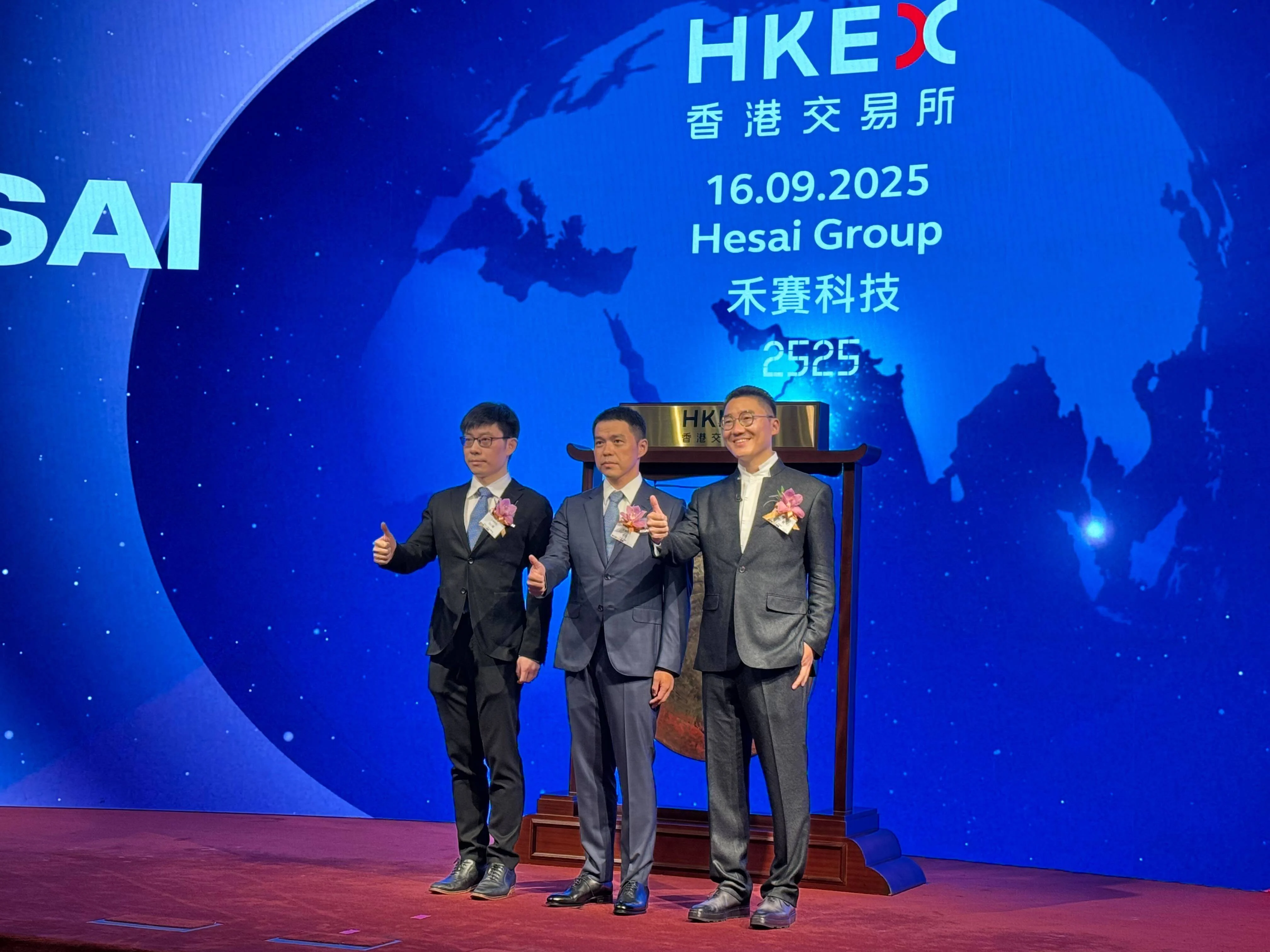
North Korea is close to developing an intercontinental ballistic missile that could hit the United States with a nuclear weapon, South Korea’s president said Thursday — though he added that it has yet to master the last, crucial step.
North Korea has been ramping up its missile testing since talks between President Donald Trump and leader Kim Jong Un collapsed in 2019 amid disagreements over U.S.-led sanctions on the isolated state. Trump has said repeatedly since returning to office that he would like to resume diplomacy with Kim.
Speaking in New York on Thursday, South Korean President Lee Jae Myung said North Korea appears to already have enough nuclear weapons for “regime survival,” and that it continues to produce nuclear material and develop ICBMs capable of delivering nuclear warheads to the continental U.S.
“It seems not to have succeeded yet, but only one final step remains — so-called atmospheric re-entry technology,” Lee said at an investment summit at the New York Stock Exchange. “That, too, is likely to be solved soon.”
If the status quo is allowed to continue, North Korea will add roughly 15 to 20 nuclear warheads each year, Lee said, and its ICBM technology will advance to the point where it has more warheads than it needs to defend itself.
“What then of the excess? The concern is that they will export them,” he said.
Lee reiterated a proposal he made in a speech to the United Nations General Assembly on Tuesday, calling for a phased solution to the North Korean nuclear issue that recognizes that denuclearization is not going to be achieved in the near future.
The Trump Administration
The latest news on Donald Trump’s presidency
Instead, he said, the goal should be for North Korea to first freeze its nuclear weapons program, then reduce it and ultimately dismantle it.
Achieving this will require Kim to negotiate with someone he trusts, and Trump “is uniquely positioned to be that counterpart,” Lee said.
“If peace can be forged on the world’s last divided peninsula, it will be a truly world-historical achievement in peacebuilding — a genuine peacemaker’s accomplishment,” he said.
North Korea has made significant advances in its nuclear and ballistic missile programs in the absence of talks.
Last year, it tested its biggest ICBM yet, the Hwasong-19, which experts say could reach anywhere in the U.S. — although they are skeptical that North Korea has the ability to guide the missile and protect a nuclear warhead as it re-enters the atmosphere.
Kim has also deepened his country’s military cooperation with Russia, sending artillery and thousands of troops to support President Vladimir Putin’s war against Ukraine.
The North Korean regime now says the U.S. and others have no choice but to accept it as a nuclear weapons state.
On Thursday, South Korean Unification Minister Chung Dong-young said North Korea was operating a total of four uranium enrichment facilities, including the only declared site at Yongbyon, about 60 miles north of Pyongyang, the North Korean capital.
Chung also said North Korea appeared to have sharply increased its stockpile of highly enriched uranium for use in building nuclear weapons.
Kim said Sunday that while he had “good personal memories” of his meetings with Trump, there was no reason to resume talks unless the U.S. “abandons its delusional obsession with denuclearization.”
He has also dismissed Lee’s overtures toward peace, including thesuspension of propaganda leaflet drops from the air and loudspeaker broadcasts along the border between the two Koreas, which technically remain at war after the 1950-53 Korean War ended with an armistice rather than a peace treaty.
Lee’s phased solution of exchange, normalization and denuclearization — known as “END” — is a clear departure from the international community’s previous approach of “denuclearization first,” said Yang Moo-jin, distinguished chair professor at the University of North Korean Studies in Seoul, South Korea.
His proposal is “the last meaningful attempt at peace under the current circumstances,” Yang said in a text message to NBC News.
It comes after a White House meeting between Lee and Trump last month that was generally considered successful, with Trump telling reporters he would like to meet with Kim this year.
“The chemistry between President Trump and President Lee could create the most favorable conditions for North Korea to come to the negotiating table and engage in rational dialogue,” Yang said.



